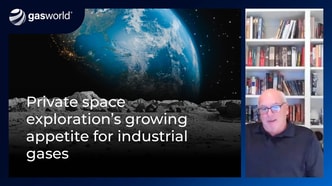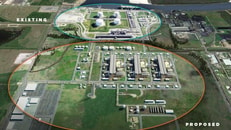Leading tech firms form global alliance to scale carbon capture
Shell Catalysts & Technologies and Technip Energies have formed a global alliance to deliver a post-combustion amine-based carbon capture solution using Shell’s Cansolv carbon dioxide capture system.
The alliance combines the firms’ respective strengths in technology and project delivery. They believe it is the best model to make carbon capture more investable, scalable and accessible for industrial sectors.
From project inception to operational support, the alliance will provide clients with “seamless execution and continuous performance optimisation”.
Shell’s Cansolv system captures CO₂ from flue gas. The CO₂ is then delivered to the client for eventual sequestration or sale into the enhanced oil recovery and commodity markets. Sulphur dioxide can also be captured and sold, reused or stored.
... to continue reading you must be subscribed
























